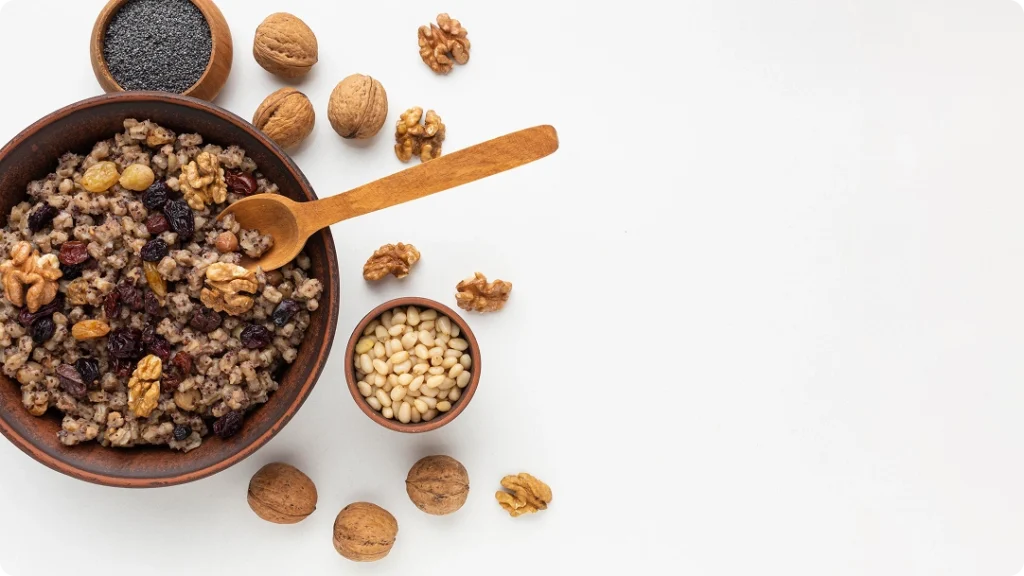Introduction
Feeling bloated, sluggish, and uncomfortable? You’re not alone. Constipation is more common than people realize—affecting up to 20% of the population at any given time. It can sneak up on you, especially if you’ve recently switched to a low-carb or keto diet, changed your routine, or unknowingly started eating foods that worsen constipation.

In this guide, we’ll walk you through the top foods to avoid when constipated, particularly if you’re following a ketogenic lifestyle. You’ll also learn how to fix keto constipation, discover high-fiber meals for constipation relief, and make smarter dietary choices that support your digestive health.
Our goal? To help you feel lighter, more regular, and more in control of your body—without giving up your health goals.
This isn’t just another list of what not to eat. Backed by nutrition science and written in plain language, this article is your practical roadmap to better gut health. Let’s dive in and get you the relief you deserve.
1. Top 10 Foods to Avoid When Constipated
While diet isn’t the only factor in constipation, it’s often the most overlooked. If you’re struggling with bowel irregularity, especially on a low-carb plan, start by cutting out these common constipation culprits.

i. Processed Grains & Refined Carbs
White bread, pasta, crackers, and sugary cereals lack insoluble fiber—the roughage your digestive system needs to keep things moving. They often slow gut motility, leaving your colon dry and sluggish.
ii. Dairy Products (Especially Cheese)
Cheese, milk, and cream can bind the digestive tract, especially for individuals with lactose intolerance or sensitive digestive systems. Full-fat dairy is often promoted in keto diets, but it can backfire when it comes to constipation.
iii. Red Meat & High-Fat Meats
Red meat is high in fat and low in fiber, making it a slow-to-digest choice. It’s also easy to overconsume on keto, which compounds the issue of low-carb digestion and fiber deficiency.
iv. Fried & Fast Foods
These foods, which are low in nutrients and high in unhealthy fats, slow down digestion and cause the colon to absorb more water, resulting in hard, dry stools.
v. Unripe Bananas and Low-Fiber Fruits
Bananas are tricky: unripe ones can cause constipation due to resistant starch, while ripe bananas are more bowel-friendly. Apples without skins and other low-fiber fruits can also contribute.
Tip: Always aim for whole foods with high fiber and water content to promote healthy bowel habits.
2. Worst Foods for Constipation on Keto
If you’ve recently started keto and noticed you’re not as regular as before, you’re not imagining it. Keto constipation is a real and common side effect, especially during the first few weeks.

i. Why Keto Can Trigger Constipation
Keto reduces carbohydrate intake dramatically, which often cuts out many fiber-rich foods like fruits, grains, and legumes. This abrupt change can leave your gut sluggish.
ii. Fiber Deficiency on Keto
With less dietary fiber, the colon struggles to form soft, easy-to-pass stools. That’s why constipation is one of the top ketogenic diet side effects.
iii. Fats That Slow Digestion
While healthy fats are a keto staple, consuming too much saturated fat (e.g., butter, cream, bacon) can delay gastric emptying and affect stool regularity.
Quick Fix: Add keto-friendly fibrous veggies like spinach, zucchini, or chia seeds to your meals.
3. Keto Constipation Fix: What to Eat Instead
The good news? Keto constipation can be fixed—without giving up your diet.

i. High-Fiber Veggies for Keto
Load your plate with non-starchy vegetables like:
- Spinach
- Kale
- Broccoli
- Cauliflower
- Cabbage
These not only help bulk your stool but also aid hydration and digestion.
ii. MCT Oils and Hydration Hacks
MCT oil (medium-chain triglycerides) promotes gut motility and can act as a mild laxative. Combine that with ample water, and you’ll likely notice improvement within days.
iii. Probiotics and Gut Health Boosters
Incorporate probiotic-rich foods like sauerkraut, kimchi, or full-fat Greek yogurt (if tolerated) to enhance your digestive health.
You’ve got options—the fix isn’t cutting keto but optimizing it.
4. High-Fiber Meals for Constipation Relief
Looking for high-fiber meals for constipation relief that still support ketosis? Here are real-world meal ideas that strike the right balance.

i. Breakfast Options
- Chia seed pudding with strawberries and almond milk
- Avocado and sautéed spinach with scrambled eggs
ii. Lunch Ideas
- Salmon salad dressed with olive oil, sunflower seeds, and lush leaves
- Cauliflower rice stir-fry with tofu and shredded cabbage
iii. Dinners That Move Your Gut
- Zucchini noodles with pesto and grilled chicken
- Eggplant lasagna with almond flour crust
Note: Each of these meals incorporates insoluble fiber, hydration, and healthy fats.
5. Natural Foods That Cause Constipation
Even “healthy” foods can be sneaky saboteurs of your digestion. Let’s uncover the common natural foods that cause constipation.

i. Tannins and Antinutrients
Foods like unripe persimmons and green bananas are rich in tannins, which can bind to the digestive tract and lead to dry stools.
ii. Low-Fiber “Health” Foods
Eggs, protein powders, and low-carb bars may seem keto-friendly, but many are fiber-deficient and cause more harm than help when over-consumed.
iii. Portion Sizes
Too much of even a good thing—like nuts or coconut flour—can overload your digestion. Moderation is key.
6. How to Fix Keto Diet Constipation Fast
Need relief now? Let’s talk about how to fix keto diet constipation fast using safe, proven methods.

i. Supplements That Help
Consider:
- Magnesium citrate (natural laxative)
- Psyllium husk fiber
- Electrolyte powders with potassium and sodium
ii. Hydration & Electrolytes
Dehydration is a silent trigger for constipation, especially on keto. Ensure you’re drinking enough water—at least half your body weight in ounces—and replenishing lost salts.
iii. Keto-Safe Natural Laxatives
Try:
- Aloe vera juice (in small amounts)
- Prune extract capsules (low in carbs)
- Herbal teas like senna or peppermint
If relief doesn’t come within 48 hours, consult your healthcare provider.
7. Lifestyle and Diet Changes to Relieve Constipation
Beyond food, your lifestyle plays a powerful role in how often and how easily you go.

i. Physical Activity
Regular movement—even a brisk 30-minute walk—stimulates digestion and gut motility.
ii. Mindful Eating
Chew thoroughly, slow down during meals, and eat at regular times to help your digestive system stay in sync.
iii. Fiber Supplements
Keto-compatible options include:
- Acacia fiber
- Psyllium husk
- Ground flaxseed
Increase fiber slowly, and always drink lots of water to go along with it.
8. When to Seek Medical Help for Constipation
Occasional constipation is normal. But if you experience any of the following, it’s time to get professional support:

- Constipation lasting longer than 1 week
- Blood in stool
- Severe abdominal pain or bloating
- Unexplained weight loss
9. Low-Fiber Nuts and Seeds
While many nuts and seeds are healthy, some low-fiber varieties—like macadamia nuts or pecans—can contribute to constipation if eaten in large quantities. This is especially true when they’re consumed without enough water or combined with other constipating foods.

- Limit high-fat, low-fiber nuts if you’re already experiencing digestive issues.
- Favor chia seeds or ground flaxseeds, which offer both fiber and healthy fats.
Pro tip: Always drink water when consuming fiber-rich seeds to help them expand and move through your gut.
10. Caffeine Overload
Caffeine can be a double-edged sword. In small doses, it may stimulate bowel movements. But too much caffeine, especially from dehydrating sources like coffee or energy drinks, can contribute to dehydration and constipation.

- Avoid getting your energy from coffee alone, especially if you’re not drinking enough water to balance it.
- Drink no more than one or two cups of coffee each day, and drink lots of water.
If you’re sensitive to caffeine, even a small increase can dry out the colon and delay digestion.
FAQ: Foods to Avoid When Constipated
1. What are the best foods to avoid when constipated?
Steer clear of foods heavy in fat or sugar and poor in fiber. White bread, cheese, fried foods, and processed snacks are common culprits.
2. What foods worsen constipation on a keto diet?
Processed keto snacks, low-fiber meats, and high-fat dairy might exacerbate constipation. Fiber-poor diets are common on keto.
3. How do I fix keto constipation fast without quitting the diet?
Add fiber-rich low-carb veggies, drink more water, take magnesium or fiber supplements, and include probiotic foods in your routine.
4. Can high fiber meals for constipation work on a low-carb plan?
Absolutely! You can create meals using ingredients like spinach, chia seeds, and cauliflower that are both keto-friendly and fiber-rich.
5. Are there natural foods that cause constipation I should avoid?
Yes. Examples include unripe bananas, tannin-rich fruits, and fiber-deficient protein products. These can all slow down digestion.
6. What diet changes relieve constipation long-term?
Include more fiber, stay hydrated, move regularly, eat on a schedule, and avoid over-consuming constipating foods like dairy and processed meats.
Conclusion
If you’ve been feeling stuck, sluggish, or uncomfortable, making a few dietary changes can go a long way. Knowing which foods to avoid when constipated—especially while on the keto diet—is the first step toward regaining your digestive comfort.

You can maintain your health goals and experience improved daily energy and gut health by making wiser decisions, such as choosing high-fiber meals to alleviate constipation, staying hydrated, and using keto constipation remedies.
Don’t wait for your next discomfort—take control of your digestion today.
👉 Ready to feel lighter and more energized? Try one of the gut-friendly keto meals above, and share your experience in the comments.
For more tips, explore our related articles:



